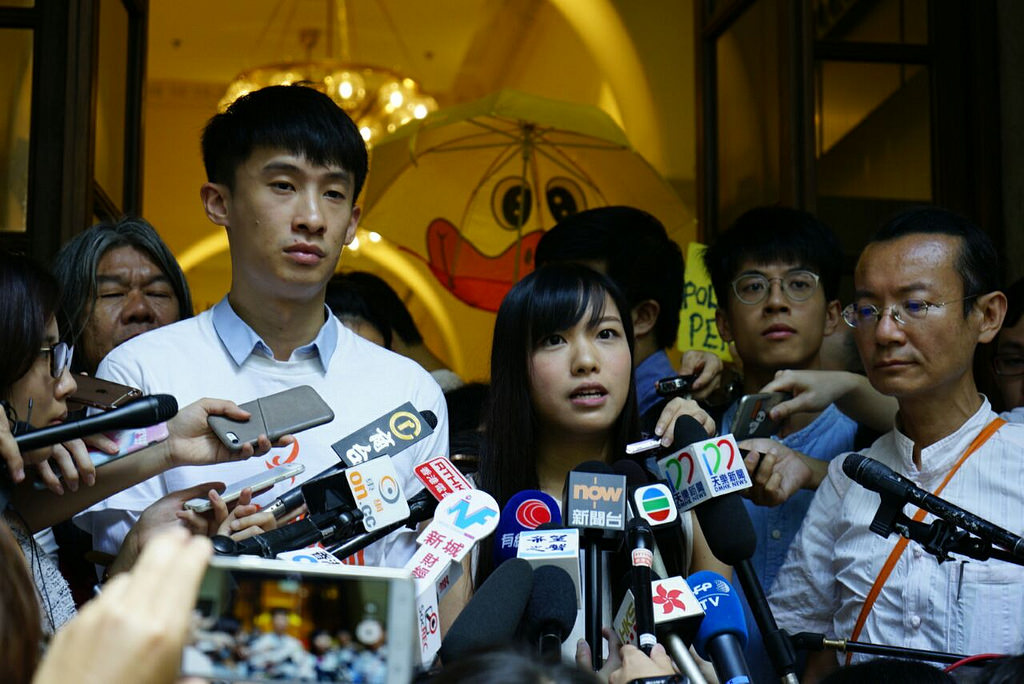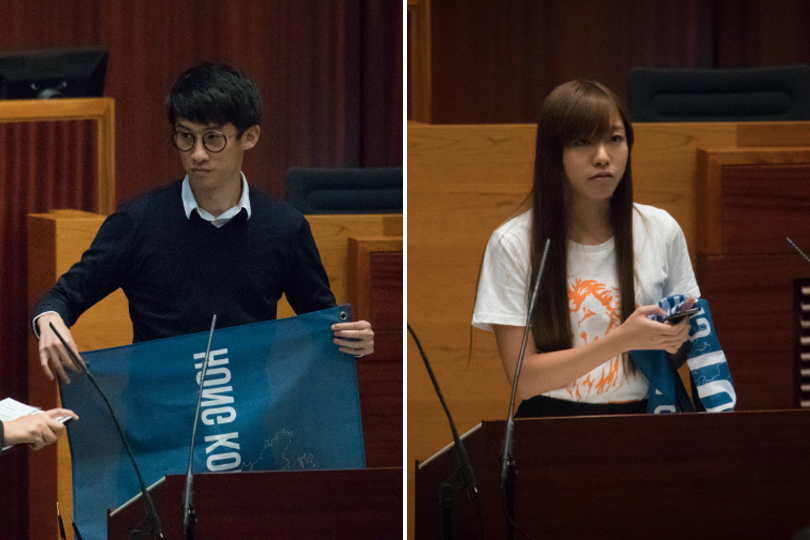Hong Kong’s top court has published its judgment after it refused to give two disqualified lawmakers – Yau Wai-ching and Baggio Leung – permission to move forward with their appeal.
It reasserted that the Basic Law interpretation by China’s legislative body was binding, and said disqualification was the “automatic consequence” of their declining to take the oath.
The pair were kicked out of the Legislative Council last October, after displaying a “Hong Kong is not China” flag and changing the wording of their oaths in a way some deemed insulting to Chinese people. The government filed a legal challenge to disqualify them, and the case triggered a controversial, and retrospective, interpretation of the law by the National People’s Congress Standing Committee.

Last week, the Court of Final Appeal rejected Yau and Leung’s application for appeal. The Legislative Council has since asked them to return their wages and expenses, which total around HK$1.8 million.
‘Not reasonably arguable’
In a judgment handed down by the Court of Final Appeal’s Appeal Committee on Friday, the court noted that the cases had provoked strong reactions from the community, but stressed that the court is only concerned with whether the criteria for granting leave for appeal are satisfied.
The Court of Final Appeal said that although some of the questions fulfilled the criteria of being of “general and public importance,” Leung and Yau’s appeals were not reasonably arguable and “there is no reasonable prospect of the Court differing from the conclusions of the courts below.” Both of these were requirements for the case to proceed.

On the issue that the courts should not intervene with legislative processes under the doctrine of separation of powers, the Court of Final Appeal said that the principle of non-intervention cannot apply because it was the duty of the courts to enforce and interpret the Basic Law.
Therefore, it said, the courts are bound by duty to question whether Leung and Yau duly took the oath on October 12, 2016, and if not, what the consequences were. “[T]he non-intervention principle does not preclude such judicial inquiry,” the court said.
The court added that “the interpretation provides explicitly that the taking of the LegCo oath is a legal prerequisite to taking up office and that a person who declines to take the oath is disqualified from assuming office.”

The court also said that it had previously been found that the pair manifestly refused and wilfully omitted – or declined and neglected – to take the Legislative Council oath, and that this fact could not be contested. Therefore, there was no discretion or judgment to be exercised by the President of the Legislative Council.
“Yau’s argument that section 21 of the Ordinance does not impose a requirement of solemnity is without substance and not reasonably arguable… it is plainly to be implied that the requirement to take the Legco oath is a requirement to take that oath in an objectively solemn manner.
Disqualification automatic
The court said the interpretation by the National People’s Congress Standing Committee was binding on the courts of Hong Kong and that its scope had been considered in a number of previous cases. Unless the court revisited these fundamental propositions of law, it said, many of the questions the duo raised were already “authoritatively determined” by the courts.
“In short, we are satisfied that the interpretation is clear in its scope and effect, that disqualification of Leung and Yau is the automatic consequence of their declining or neglecting to take the Legco oath, and that it is binding on the courts of the Hong Kong Special Administrative Region as regards the true construction of [Basic Law 104] at the material time when Leung and Yau purported to take their oaths,” the Court of Final Appeal said.
However, the court also said that in any event, regarding the other questions Leung and Yau raised on the true construction of Basic Law 104, in view of section 21 of the Oaths and Declaration Ordinance and the findings of the facts, “the outcome of the present case would be the same irrespective of the interpretation.”
Four more lawmakers were disqualified by the court in July, amongst them veteran activist and legislator Leung Kwok-hung, who said he will be lodging an appeal.
